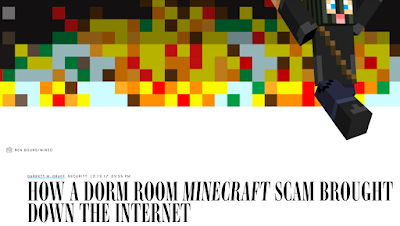Remember the Russian Attack on the Internet?
Of course, the minute there is any suspicion of the ‘nation-state’ actors behind the attack, we know that is the code word for ‘the Russians’. And, of course, given the sheer number of ‘security research’ lackeys eagerly awaiting for the U.S. or UK or EU dollars/pounds/euros in grants and subsidies, the ‘Russian’ spectre loomed large in the wake of Mirai havoc. Here’s a snapshot:
- http://www.itsecurityguru.org/2016/10/12/research-shows-russian-hackers-could-be-behind-the-mirai-botnet/
- https://www.nbcnews.com/news/us-news/who-shut-down-u-s-internet-friday-n671011
- https://twitter.com/hackerfantastic/status/782840355116969984
- https://www.networkworld.com/article/3130504/security/record-iot-ddos-attacks-raise-bar-for-defenders.html
- https://www.csoonline.com/article/3144200/security/expect-more-iot-botnet-attacks-mirai-source-code-now-freely-available.html
- https://www.nytimes.com/2016/10/22/business/internet-problems-attack.html
But, in the end, the famous DoS attack was down to just three U.S. students: https://www.wired.com/story/mirai-botnet-minecraft-scam-brought-down-the-internet/?mbid=social_twitter. Which, sort of, begs a question: how many ‘security experts’ of the ‘Russian spectre looms large over everything’ variety have lost their lucrative contracts with the Government, the media and the think tanks that provide platforms to the endless Russophobic hysteria? My bet is: none. Like in the good old days of the Soviet empire, you can’t get fired for lying in Pravda…
